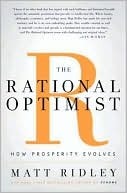That meant they sold wool for cash rather than strove for self-sufficiency. They presumably used that cash to buy bread from the baker who bought flour from the miller, who bought grain from other farmers, who therefore got cash too. Instead of self-sufficiency, everybody was now in the market and had disposable income. People wanted to travel to the market in nearby Salisbury to buy things: so the carter was doing well, too, and the merchants in Salisbury.
Welcome back. Just a moment while we sign you in to your Goodreads account.


